There's Always Tomorrow
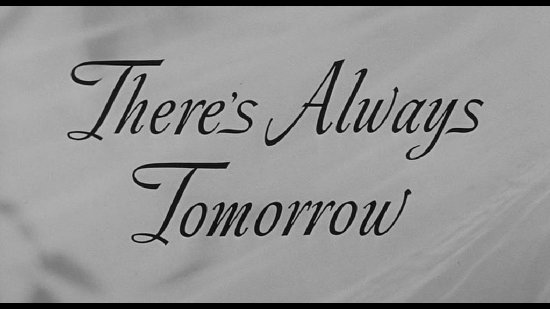
Cliff Groves has brought flowers for his wife Marion. It's her birthday and he has planned a surprise visit to the theatre. Things don't go to plan. Marion has to take their daughter Frankie to ballet class. His other kids Vinnie and Ellen don't want to go to the theatre either, they are too busy to spend time with dad.
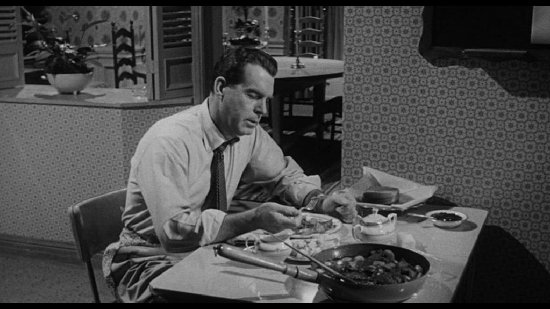
Cliff is eating dinner alone when there is a knock at the door. It's Norma Miller - his old toy-store work colleague. It's been 20 years. They remember the good times. He suggests they go to the theatre show. After a wonderful evening, they visit the toy-store. He introduces Norma to 'Rex, the walkie-talkie robot-man'. Looking at the toys, they stir up more tender memories. Norma remarks, 'you know tonight, for a little while, time stood still'.
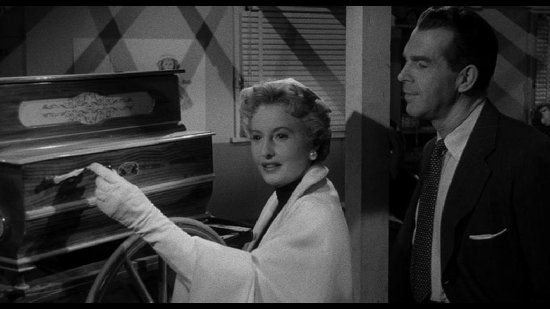
Cliff begins to think about his life after meeting Norma. He is sick of the sameness so he plans a holiday. It'll be good to reconnect with his wife. Things don't go to plan again. Marion doesn't want to go. Their daughter Frankie has twisted her ankle.
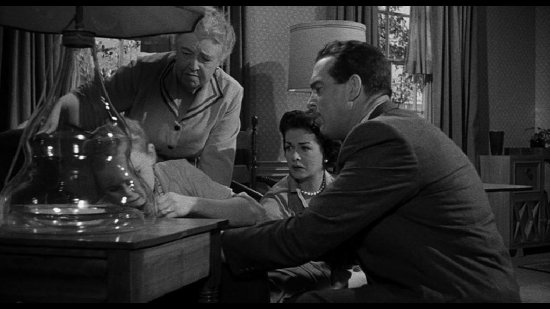
Cliff turns the holiday into a business trip. He meets Norma. They go horse riding, swimming and dancing. Cliff realises he is not appreciated by his wife and kids. With Norma, he is full of life. She is exciting, passionate and thoughtful. Cliff has fallen in love...
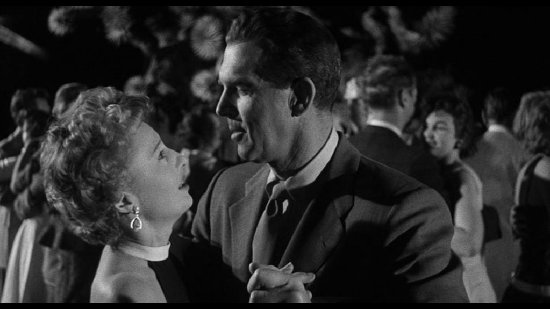
Vinnie discovers the intimacy that Norma and his dad share. He thinks they are having an affair. When Cliff returns home, he explains that he met Norma and they had a nice time but his children are still suspicious. Dad is ready to leave his loveless life behind; will they be able to stop him?
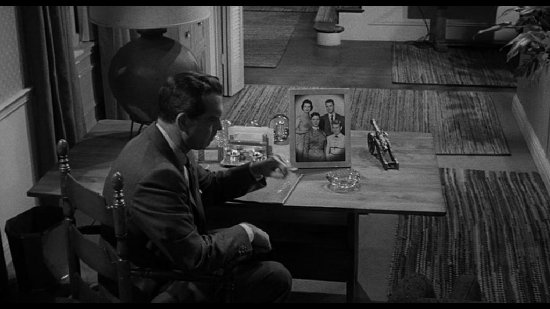
Douglas Sirk directed There's Always Tomorrow (1956) between All That Heaven Allows (1955) and Written in the Wind (1956). It stars the beautiful Barbara Stanwyck (Norma) and the handsome Fred MacMurray (Cliff). It is a testament to lost love, a study of suburban America and a contemplation of male mid-life crisis.
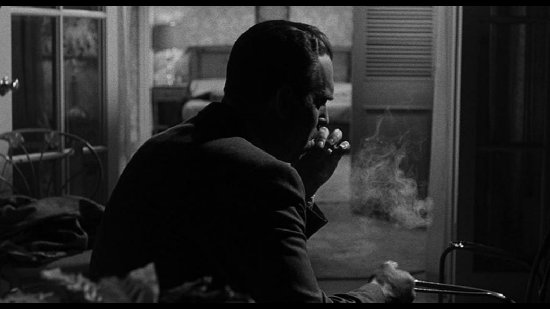
Cliff's wife and kids have pushed him aside. Even though he gives them love, they ignore him, treat him with disrespect and observe him as a non-entity. Just like his creation 'Rex, the walkie-talkie robot-man' he is an emotionless machine who you can 'push and steer wherever you can'.
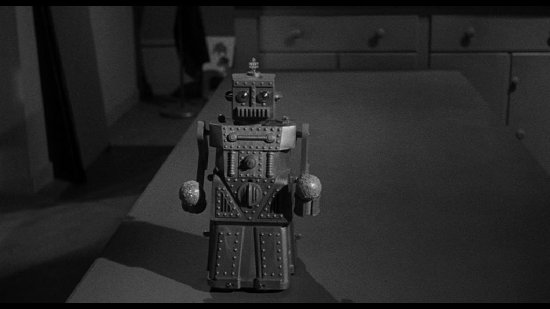
The black and white cinematography by Russell Metty is beautiful. Having worked with Sirk on nine other pictures, their collaboration cemented the 'Sirk Style'. It is elegant, meaningful and filled with shadowy noir-tinged musings (it evokes Metty's later work on Touch of Evil [1958]).
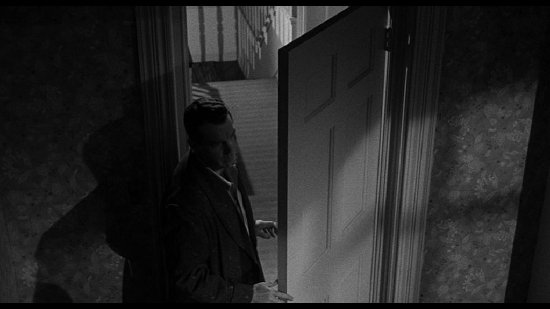
The alluring aptitude of Barbara Stanwyck and the arousing ability of Fred MacMurray (who worked together on Double Indemnity) make There's Always Tomorrow a delectable movie. You feel their genuine desire to muse over the past, their natural inclination to rebound their passion-tinged dialogue, which is sweet and filled with promise. Their mannerisms overflow with restrained love. It's not the tenderness between Bogart and Becall but it's still exquisite.
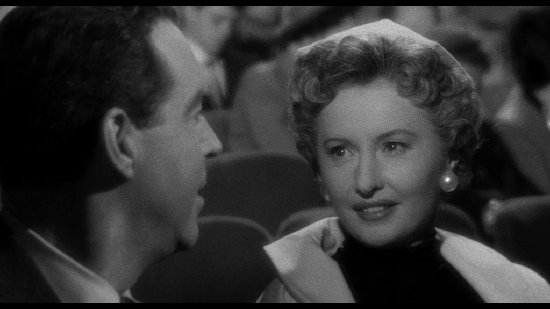
The standout scene when Vinnie and Elle confront Norma in her hotel room, cements Sirk's handling of the brewing love affair. Norma blames them because they don't show their father love. She tells them, 'your father has been neglected for a long time by a family he loves. You've treated him shamefully.'
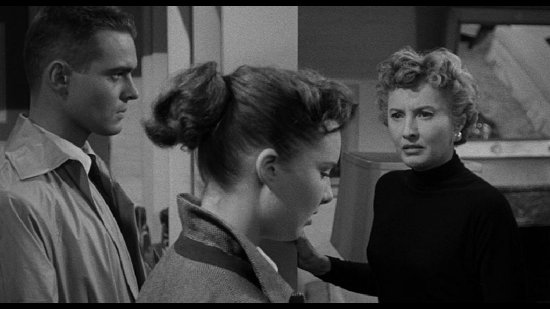
This is the core to There's Always Tomorrow. Because his wife and children are apathetic towards his needs, Cliff has found love elsewhere. Norma says, 'why should Cliff need me if he was given love at home?' She represents change, a second chance. Norma then tells them, 'Why do you take and not give back one shred of love in return?' They soon come to realise their mistakes and understand what is important…
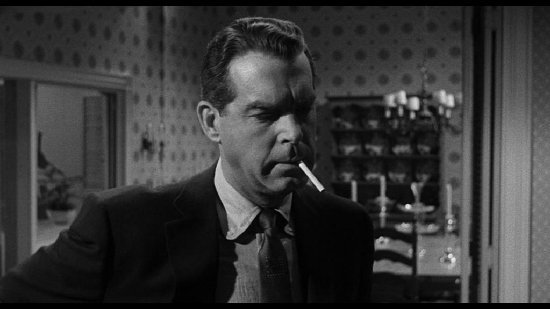
Disc: The high-definition transfer is sublime. The new optional English subtitles are a nice addition for the hearing impaired.
Special Features: The 61-minute documentary 'Days with Sirk' contains rare interview footage with Sirk. The booklet features an analysis of the opening sequence and excerpts from a 1977 interview with Sirk. If you're watching the movie on a computer, you can access the original dialogue and continuity script (in PDF form).
Verdict: The ending is bleak, austere and poignant, like the iconic sequence in Casablanca (1942); waiting is part of being in love.
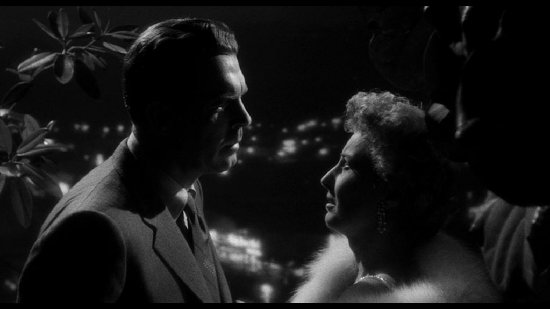
Watch for the way Sirk and Metty uses objects, mirrors and reflections:
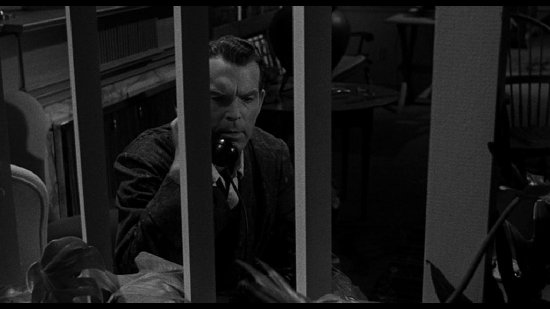
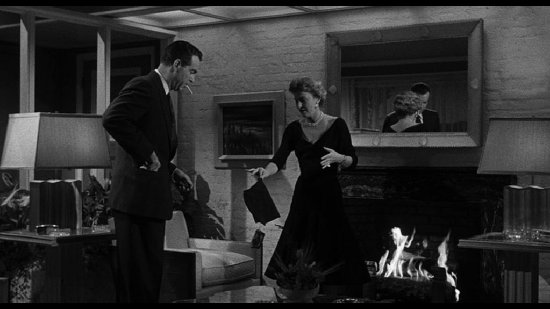
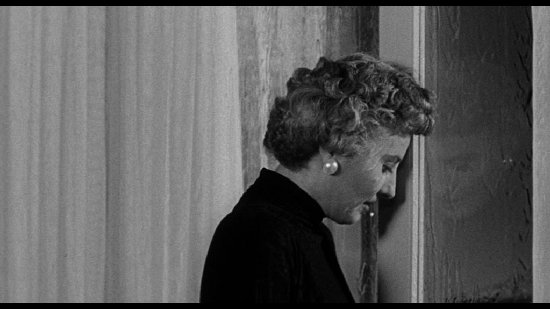
Your Opinions and Comments